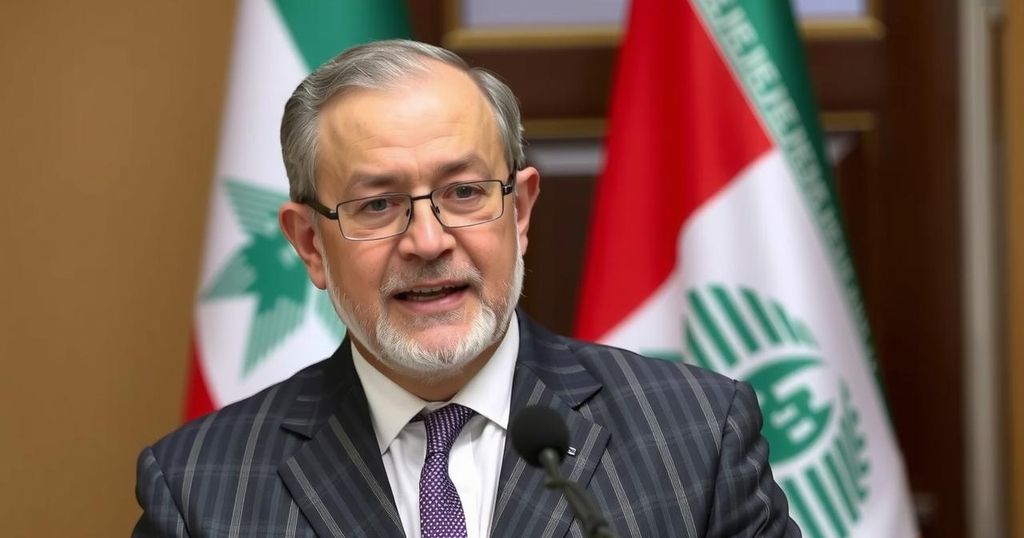Syria’s new leader Ahmed al-Sharaa has assured Lebanon of no negative interference, emphasizing respect for its sovereignty. Following his rise to power through HTS, which recently ousted Bashar al-Assad, Sharaa met with Lebanese leaders to reaffirm this stance. Ties with Turkey and engagement with Saudi Arabia signify a shift in regional dynamics amid heightened international attention towards Syria’s governance.
Ahmed al-Sharaa, the newly appointed leader of Syria, has pledged not to interfere negatively in Lebanon, expressing respect for the country’s sovereignty. This commitment comes following his quick ascent to power after a recent takeover, where his group, Hayat Tahrir al-Sham (HTS), overthrew the regime of Bashar al-Assad. During discussions with Lebanese leaders, including Druze chiefs Walid and Taymur Jumblatt, Sharaa emphasized the intention of maintaining equal distance from all factions within Lebanon, acknowledging Syria’s past as a source of fear for its neighbor.
Additionally, Sharaa conveyed a commitment to respect Lebanon’s decision-making autonomy and stability, marking a notable shift from previous Syrian interventions in Lebanese affairs. Meeting with Turkish Foreign Minister Hakan Fidan was also indicative of ongoing relations between Turkey and Syria’s new leadership. Saudi Arabia’s readiness to engage in dialogue with Syria further illustrates a potential shift in regional alliances following the change in power.
The motivations behind Sharaa’s statements may relate to the precarious situation within Syria and the international community’s heightened scrutiny of the new leadership, including calls for protection of women and minorities. Prominent Iranian leaders have also anticipated a strong resolve from Syria’s youth against any manifestations of insecurity.
The political landscape in Syria has dramatically transformed following a series of events leading to the ousting of Bashar al-Assad. The rise of Ahmed al-Sharaa and his faction HTS marks a significant shift in Syria’s governance, as HTS has been designated a terrorist organization by various countries, including the United States. This change directly affects Lebanon, where Syrian influence has traditionally been pervasive and often controversial. The historical context includes Syria’s military presence in Lebanon from 1976 to 2005 and the tense relations following the assassination of former Prime Minister Rafic Hariri, which many attribute to Syrian involvement. The current stance of Sharaa reflects an attempt to reshape Syria’s foreign relations, especially regarding Lebanon, and to redefine the country’s role in the region amid growing international scrutiny and the pressure to establish a stable governance structure.
In conclusion, Ahmed al-Sharaa’s commitment to abstaining from negative interference in Lebanon signifies a potential turning point in Syrian-Lebanese relations. His discussions with regional leaders demonstrate a desire to reshape Syria’s role in the region, prioritizing respect for Lebanon’s sovereignty and stability. As Syria navigates its new political landscape, ongoing interactions with Turkey and Saudi Arabia, along with calls for protections of minorities, will play a crucial role in determining the future dynamics of the region.
Original Source: www.hindustantimes.com






